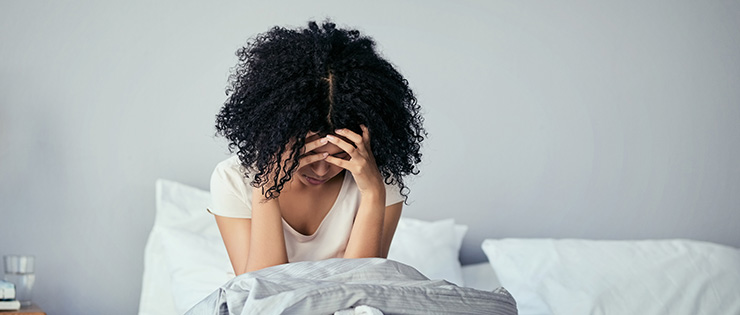
Migraines are something I commonly deal with as a GP. I’m often surprised that sufferers aren’t aware of the simple ways in which they can improve their quality of life by both preventing and treating their migraines better. Here are my top key pointers on this common headache.
Migraines are different from tension headaches.
Migraines are usually a unilateral throbbing headache around the eye area. With the headache, patients will often get nausea, vomiting and sensitivity to light and/or noise. The symptoms can last from hours to days and for many can result in missed days at work or school.
A small proportion of people will get an aura before a migraine.
It often involves a visual symptom like flashing lights or blurry vision. For some, an aura can include hearing noises or feeling numb in a portion of the body. The aura is transient – the symptoms resolve.
Women who suffer from migraines with an aura are somewhat limited in their contraception options.
Any contraception containing oestrogen – such as the combined oral contraceptive pill (AKA “the pill”) – is not recommended as the oestrogen can increase stroke risk in the individual. For women who suffer from migraines with aura, non-oestrogen-based contraception options are favoured such as the progesterone only pill (AKA “mini pill”), Implanon or Mirena. The World Health Organisation recommends that women who've ever had a migraine with aura should not be placed on the combined oral contraceptive pill – so as a GP, this is one of 6 questions I ask any women before I write a pill script, be it a first or ongoing script.
Identifying triggers for migraines is a big part of the management plan.
Triggers can be foods (commonly cheese or red wine – I know the world can be cruel!), sleep deprivation or stress. Trigger avoidance is a key way to manage migraines – stopping them from even happening is the best outcome!
Why focusing on good sleep quality and stress management is beneficial.
As a GP, I will often prescribe my patients who suffer from migraines good sleep hygiene measures such as no caffeine after 2PM and no screens in the 1 hour before bed to improve sleep quality. I also often discuss stress management with tools like exercise and meditation to prevent frequent migraines.
Migraines are usually a clinical diagnosis.
We do rely on history and examination, however, for those with complex symptoms or frequent migraines, we consider further investigation with CT or MRI of the brain to ensure there is no other cause for the headache.
Treatment for migraines is varied for each individual.
For some, a high dose of Aspirin is beneficial, whereas others may require other medications such as Triptans to help with the pain. For those who suffer from frequent migraines, that affects the quality of life, we can consider preventative therapies which can include nerve medications such as Amitriptyline, a blood pressure lowering medication called Propranolol or Botox injections around the facial area.
Migraines can be debilitating for some – knowing how to manage them can significantly improve quality of life! Chatting to your GP if you’re a sufferer is a great first step.